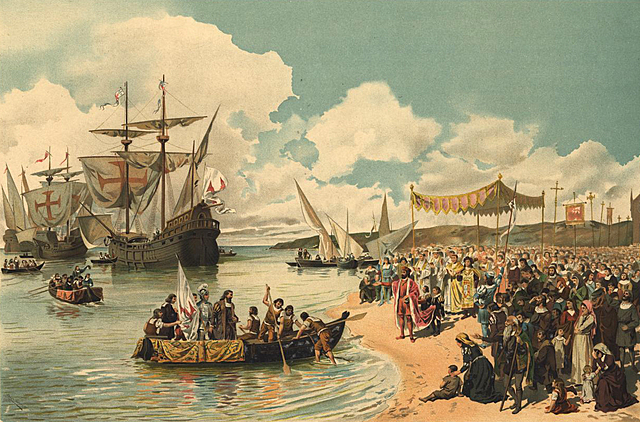The Indian Ocean trade routes, spanning from the shores of East Africa to the teeming marketplaces of Southeast Asia, served as a vibrant and lucrative nexus of global commerce for centuries. However, the arrival of European powers, particularly Portugal, marked a profound shift, ultimately leading to the dismantling of this intricate network that had long shaped the economies and cultures of coastal Africa, India, and beyond.

Image: www.pinterest.com
The Portuguese, fueled by a thirst for wealth, adventure, and religious zeal, ventured into the Indian Ocean in the late 15th century, seeking a maritime path to the lucrative spice trade of the East. Their voyages led to the establishment of a series of trading posts and fortresses along the African and Indian coasts, designed to control access to key trade goods and establish a monopoly over the spice trade.
Portugal’s strategy involved not only military dominance but also diplomatic maneuvering and economic exploitation. They forged alliances with some local rulers while ruthlessly subjugating others, imposing harsh taxes and restrictions on trade. The Portuguese presence disrupted the existing trade patterns, breaking the long-established links between East Africa and India.
One of the most devastating consequences of Portuguese control was the decline of the Swahili city-states along the East African coast. The Swahili, who had long prospered as intermediaries in the Indian Ocean trade, found themselves marginalized and their economic vitality diminished. Portuguese forts and blockades choked off trade routes, diverting much of the wealth and influence that had once sustained the Swahili cities.
Moreover, Portuguese control of the trade routes had far-reaching implications for the African kingdoms of the interior. These kingdoms, which had relied on Indian Ocean trade for luxury goods, weapons, and other vital imports, now faced depleted resources and diminished access to the global market. The resulting economic disruption and political instability further weakened these already fragile states.
The Portuguese monopoly also had a profound impact on the spice trade itself. By controlling access to the principal sources of spices in the East Indies, Portugal was able to manipulate prices and supply, enriching themselves at the expense of other European traders. This led to a dramatic increase in the cost of spices, making them a luxury reserved for the wealthy elite in Europe.
The Portuguese hold on the Indian Ocean trade gradually began to erode in the 17th and 18th centuries as other European powers, such as the Dutch and the British, challenged their supremacy. Yet, the legacy of Portugal’s destructive policies lingered long after their empire crumbled. The disruption of the Indian Ocean trade routes had devastating consequences for the economic and political development of coastal Africa and India.

Image: www.timetoast.com
Africa Portugal And The Destruction Of Indian Ocean Trade
https://youtube.com/watch?v=r3gxIrKyZGI






